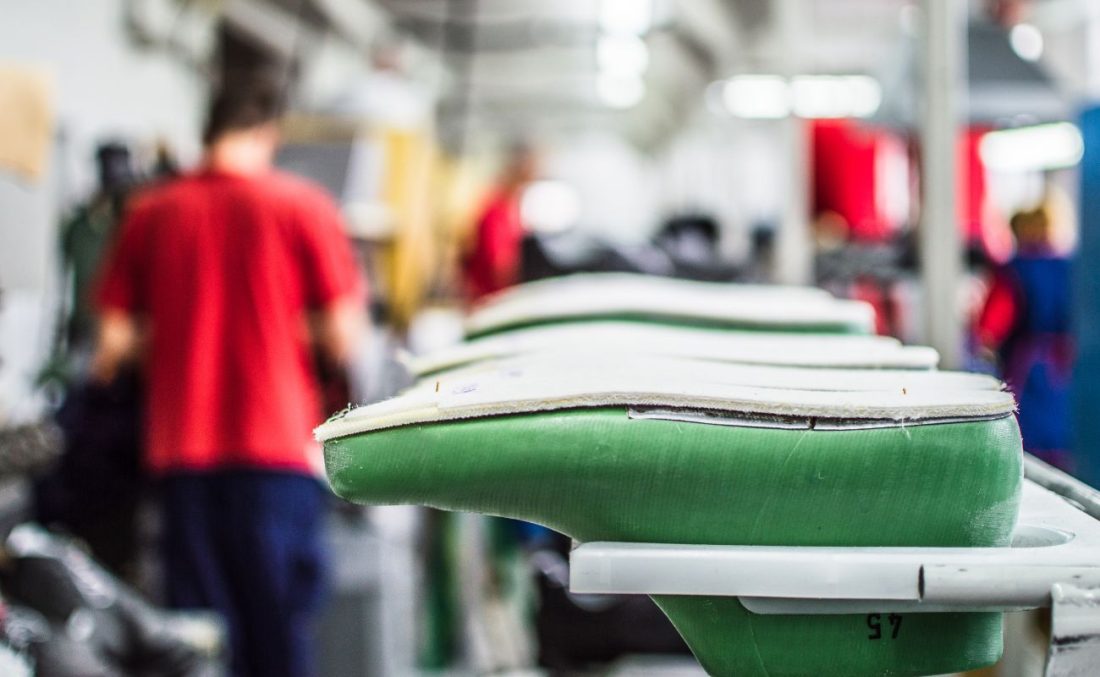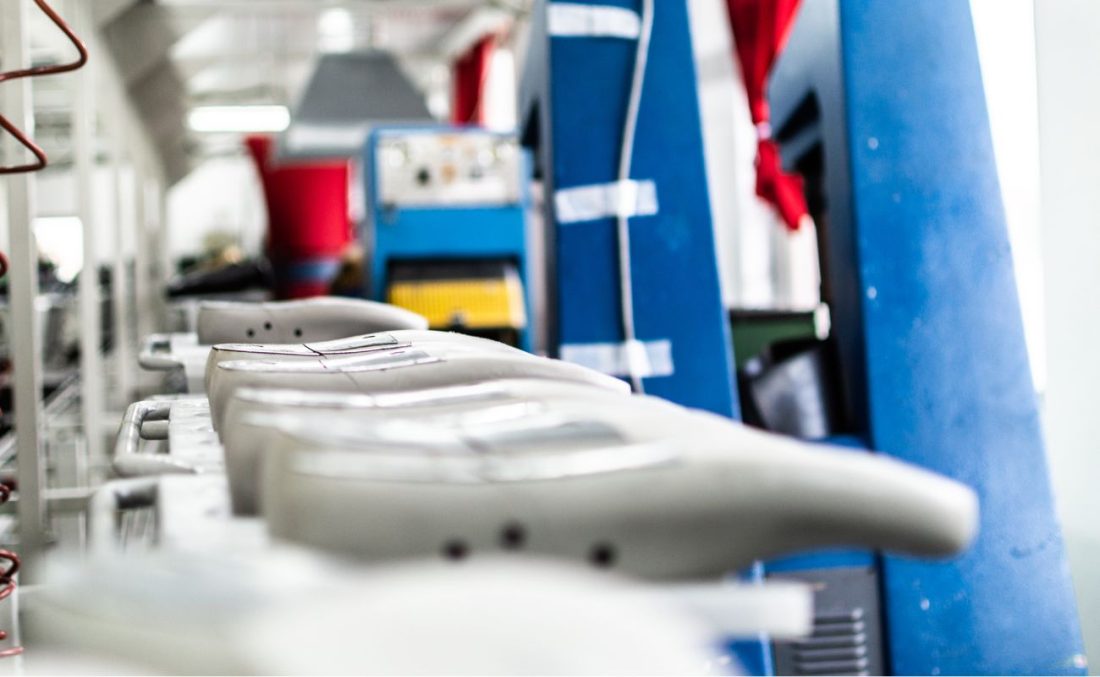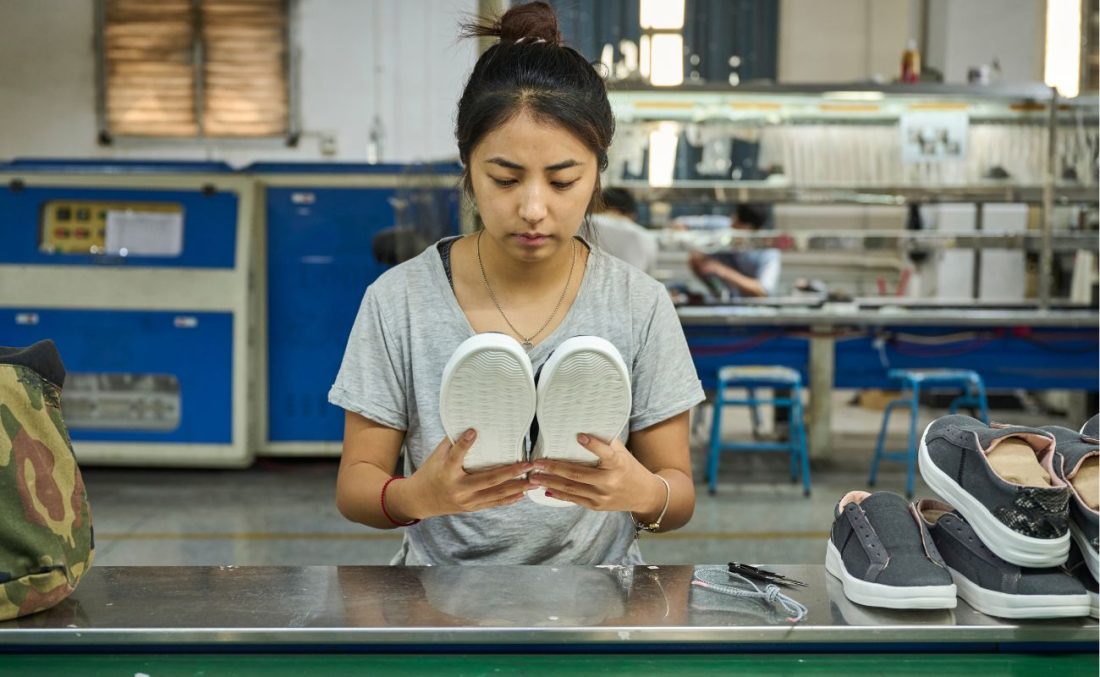Main Areas of Shoe Production in China
June 30, 2024
Main Areas of Shoe Production in China
The changing landscape of shoe manufacturing has led many companies from around the world to source their shoes from China. Let’s clarify the different areas of shoe production and purchasing in China and explain what makes each area unique.
The Four Central Areas
There are four central areas of footwear manufacturing in China. Just like their distinctly different geographical locations in China, they specialize in different types of shoe production.
- Dongguan, Guangdong province
- Jinjiang, Fujian province
- Wenzhou, Zhejiang province
- Chengdu, Sichuan province
Dongguan
Dongguan, the largest footwear production area in the world, trumps other shoe manufacturing areas entirely. This area makes about 65% of the world’s high-end shoes or popular shoes. Dongguan hosts more than 1,500 footwear factories, 2,000 facilitating companies, and 1,500 related traders and purchasers. It also holds an annual shoe exposition in conjunction with the Canton Fair that attracts more than 15,000 trade visitors.
Jinjiang
Jinjiang’s footwear production zone is also quite impressive. This main area of shoe production has managed to use new technologies to be on the cutting edge of the industry, but Dongguan’s numbers continue to dwarf this area. Jinjiang brands itself as the “Shoe Capital of China”. Many famous Chinese shoe brands are produced here like 361, the successful Chinese athletic brand, and some others you might not have heard of like Anta, X-Step, ERKE, Athletic, and XDlong.

Wenzhou
Wenzhou is home to approximately 3,000 shoe-making enterprises. The Wenzhou municipality hosts three cities where the factories are densely located, Lucheng, Yongjia, and Ruian. Previously Wenzhou concentrated on the overseas market, now the pattern shows the trend of shoes produced for the Chinese domestic market because of the growing demand domestically. Similarly to Jinjiang, most of their famous brands like Kangnai, Dongyi, Gilda and Fushida, and Aolun are not well known in the West because they are sold domestically.
Chengdu
Sichuan’s geographical location in the west of China, far from the industrialized East Coast of China, makes Chengdu the biggest shoe manufacturing center in this relatively less-developed region. Chengdu specializes in the production of ladies’ footwear, and the industrial cluster brings in more than 10 billion RMB in sales revenue. The shoes made here have even entered the markets of more than 117 countries.
Purchasing in China: Athletic Footwear Production Line
Domestic and international factors have influenced each of these areas and their industry strategies. For example, matters like appreciation of the RMB and an increased price in raw materials have hit some of these production areas harder than others. Dongguan in Guangdong, saw a lot of bankruptcy in manufacturing and movement of factories inland or to other countries like Vietnam or India, while Jinjiang wasn’t affected as much because of a higher level of production of shoes for the Chinese market. All these production areas are finding their unique niches in order to adapt to changes within the international economy. This flexibility affords them a prosperous future. Major athletic sportswear companies, like Nike, Adidas, Reebok, etc. utilize more than one of these footwear production areas when purchasing in China because of the unique benefits each one presents.

As you’ve read, the opportunities of sourcing shoes from China is vast and each area presents different benefits for its clients. We hope this information has been enlightening about the different areas and niches of shoe manufacturing in China.
Check out our other blog post for more information on this topic: China Sourcing of Footwear: Know-how and Management
To find out where your sourcing program stands, take our Sourcing Survey to gauge your China sourcing performance here.
Editor’s Note: This blog was originally published in December, 2012

